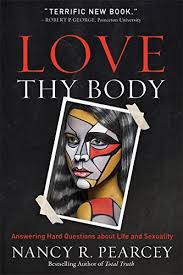
“Do not make yourselves unclean by any of these things, for by all these the nations I am driving out before you have become unclean, and the land became unclean, so that I punished its iniquity, and the land vomited out its inhabitants. But you shall keep my statutes and my rules and do none of these abominations, either the native or the stranger who sojourns among you (for the people of the land, who were before you, did all of these abominations, so that the land became unclean), lest the land vomit you out when you make it unclean, as it vomited out the nation that was before you.
— Leviticus 18:24–28 —
A few weeks ago, our church restarted its Tuesday discipleship night, which means we have begun again our study of Leviticus. And this week, we looked at Leviticus 18 and its detailed prohibitions against sexual sin. While many parts of Leviticus are foreign to modern readers, this chapter is not. Sadly, sexual sin continues to overrun our world, ransack our families, and invite the judgment of God. And in Leviticus 18, we find a long list of prohibitions that outline ways that men and women deviate from God’s design and invite God’s destruction. And as we will see, that destruction is not just personal, it is also national. Therefore, Leviticus 18 has much to say to us today and the judgment of God that comes upon nations that celebrate and promulgate sexual immorality.
Yet, we cannot make an immediate jump from Leviticus 18 to ourselves, not without seeing how this passage fits in Law of Moses and the rest of the Bible. While initial impressions of this text make it easy to connect God’s judgment on Canaan to the widespread sexual immorality of our day, superficial connections often misapply God’s Word. Moreover, we need to step back and understand how God can bring a judgment on Canaan, or any other nation, when in fact Israel is the only geopolitical nation who has ever been in covenant relation with God. To put it differently, we need to see how Leviticus 18 fits into the larger plans of God’s creation. For this in turn will help us make sense of the way Leviticus 18 finds fulfillment in a passage like Romans 1 and in our world today.
So, in what follows I will (1) set Leviticus 18 in the context of creation, (2) explain from the text what vomiting from the land means, (3) make connections to Romans 1 and God’s ongoing judgment on sexual sin, and (4) illustrate how the Bible finds confirmation in the historical research of a British sociologist, J. D. Unwin. (N.B. We start with Scripture and illustrate with social sciences, not the reverse.) Continue reading

 So glorify God in your body.
So glorify God in your body.  The Prince William County School Board is set to vote again on Proposal 060,
The Prince William County School Board is set to vote again on Proposal 060, 



